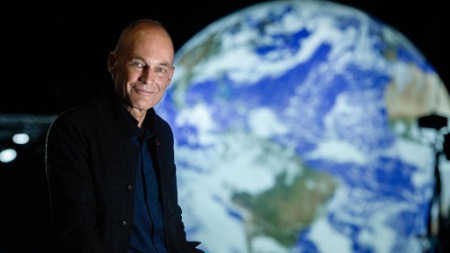Opinion
In the shoes of a negotiator

On this last official day of COP26, I would like to present to you the role played by negotiators, these mysterious actors that everyone talks about without really knowing them. I asked one of them, representative of the European Union, to tell us about these two weeks spent at the negotiating table, in a sometimes frustrating process, but absolutely essential. A process that sets the minimum threshold for a global ambition.
Nicolas Galudec is responsible, on behalf of the “Europe team”, for negotiating the provisions of the Paris Agreement relating to technology transfer. He joined the European Union climate negotiation team a year ago. Before that, he was negotiating Brexit. While the latter could drag on without real delay, in Glasgow, the negotiators must necessarily reach a final agreement at the end of these two weeks. This is short, but has the advantage of mobilizing stakeholders to force the achievement of a result.
Nicolas' work did not start on the first day of the COP. The previous months have seen an alignment of the positions of the 27 Member States of the European Union. Many are unaware that the EU is expressing its position in the climate negotiations as a united bloc. When Nicolas, or one of his European colleagues, speaks at the negotiating table, he does so not on behalf of a Member State but on behalf of the European Union.
He tells us about his 3pm days with unfeigned enthusiasm. Is he tired? No, adrenaline stimulates him. Its negotiating mandate relates to the provision of the Paris Agreement which requires developed countries to take all possible measures to promote and finance the transfer of climate technologies to developing countries. After a coordination meeting with his colleagues from member states early in the morning, Nicolas joined the negotiators of the 197 other nations present, the “Parties” - for a formal plenary session. One hour per session, not a minute more, to take stock of the progress of the discussions. Then, the COP President sends everyone back to informal working groups which take over to move the talks forward until the next formal meeting.
Count those who are absent from informal working groups
In such a process, working with like-minded partners is necessary, but it is essential to include those who are absent from these informal groups. They are the ones who can subsequently abort the negotiations by declaring that they were not present. Nicolas confesses that this was the strategy adopted in particular by one of the countries. The empty chair policy has repeatedly jeopardized the gains made in the breakout discussions. Despite the sabotage attempts by some, parts of the subgroup managed to agree on a final text. The plenary session with all the ministers then makes it possible to take note of the texts validated in the sub-groups.
The United Nations climate process is a rigorous process that limits any haggling between the different chapters. You cannot let go of something on one side and hope to gain an advantage elsewhere. A very rigid method, it seems, but firmly anchored in international law. There is no room for fantasy because everything is codified. Although it is slow and laborious, with heated arguments around every word, every comma, the beauty of this process is that it limits any backtracking. These are minimum thresholds that are fixed each time, and on which we can then build extensions.
In the very last days, it is the political leaders who take center stage in accepting or not the details of the long-awaited final declaration, and which incorporates all the elements that the negotiators have carefully assembled, like that of Nicolas. So much for formal decisions, which can only be taken unanimously by the parties. Despite the goodwill of some, the search for consensus will be aligned with the position of the one who will resist the most. Nicolas reassures us all the same by specifying that few countries have a real interest in pulling too much on the rope, because an overall failure of the negotiations would cause them to lose advantages elsewhere. In addition, the most reluctant nations are inclined to make at least some concessions in the name of international cooperation so as not to isolate themselves from the world stage.
Building informal alliances
If some countries want to move faster and leave others behind, there is only the possibility of building informal alliances. This is how coalitions were formed in Glasgow between several leaders to accelerate particularly fruitful sectoral actions, such as reducing methane, stopping deforestation, accelerating the adoption of clean technologies and stopping financing of fossil fuels abroad. Those who accuse the COPs of being ineffective should know that these coalitions are only possible because there is regular exchange between the parties within the framework of the United Nations.
These regular meetings are therefore essential to change the situation and obtain concrete multilateral actions. The COPs serve as annual milestones to reach agreement more quickly thanks to the United Nations framework. For Nicolas, human contact between negotiators is essential and can unblock a number of delicate situations. Humans therefore remain the only ones able to save humanity ...



